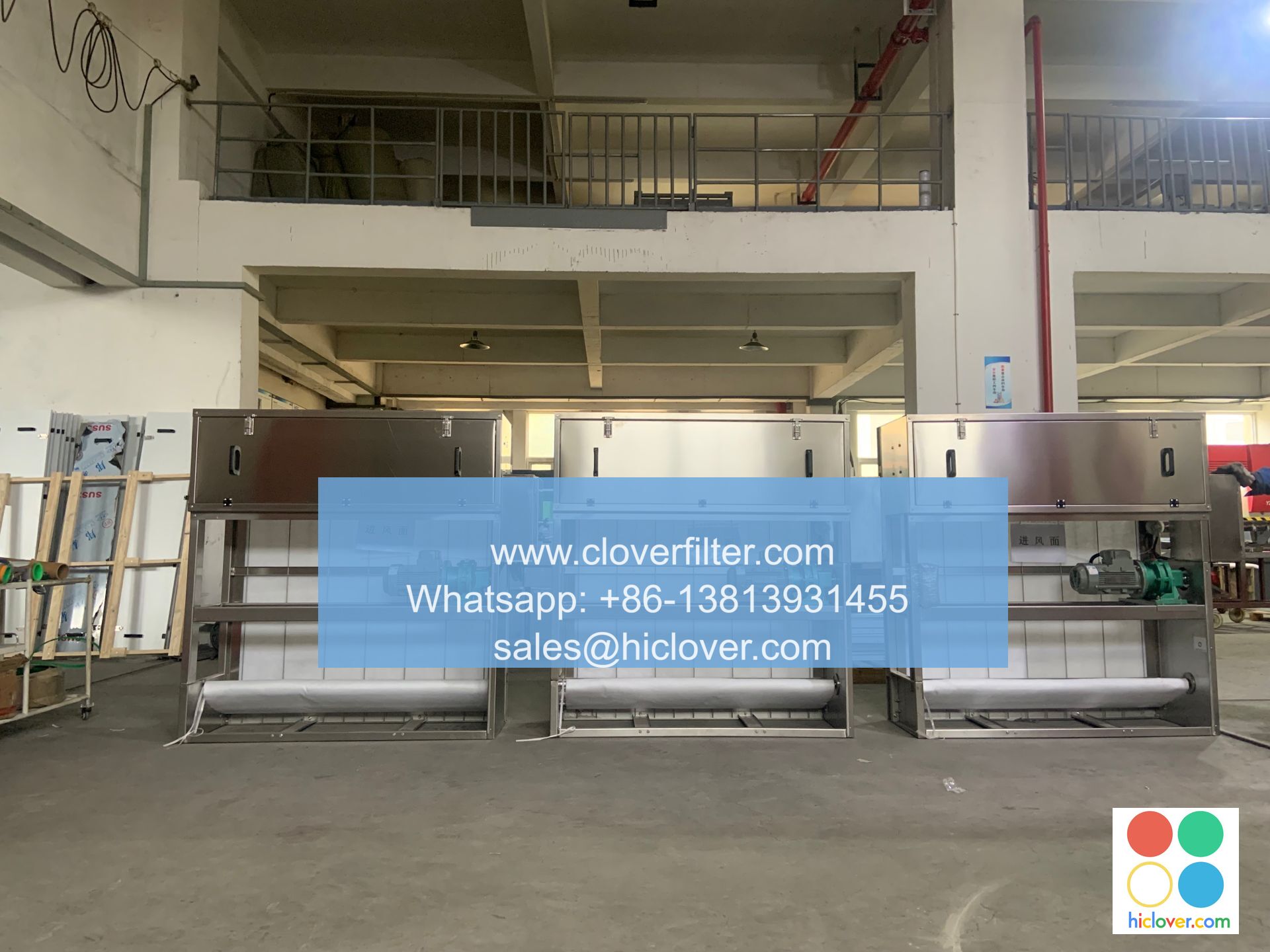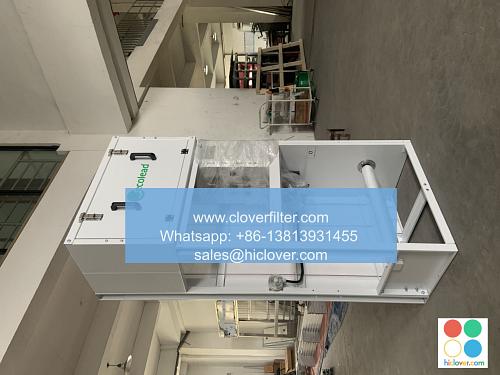Newfoundland Offshore Oil: The Impact of Automatic Roll Air Filters on Air Quality

Newfoundland’s offshore oil industry has been a significant contributor to the province’s economy for decades. The industry has created thousands of jobs and generated billions of dollars in revenue. However, the extraction and processing of oil also have environmental implications, particularly when it comes to air quality. One technology that has been implemented to mitigate the impact of offshore oil operations on air quality is the automatic roll air filter.
Automatic roll air filters are designed to remove particulate matter, including dust, pollen, and other contaminants, from the air. These filters are commonly used in industrial settings, including offshore oil platforms, to improve air quality and reduce the risk of respiratory problems for workers. The filters work by drawing in air and passing it through a series of filters, which trap particulate matter and other contaminants, allowing clean air to pass through.
The implementation of automatic roll air filters on offshore oil platforms has had a significant impact on air quality. By removing particulate matter and other contaminants from the air, these filters have helped to reduce the amount of pollutants released into the atmosphere. This, in turn, has improved air quality for both workers on the platform and the surrounding environment. Additionally, the use of automatic roll air filters has helped to reduce the risk of respiratory problems for workers, creating a healthier work environment.
The use of automatic roll air filters also has economic benefits. By improving air quality, these filters can help to reduce the cost of maintaining equipment and extending the life of machinery. Additionally, the use of automatic roll air filters can help to reduce the cost of healthcare for workers, by reducing the risk of respiratory problems. This can lead to significant cost savings for oil companies operating in the region.
Furthermore, the implementation of automatic roll air filters on offshore oil platforms has also had a positive impact on the environment. By reducing the amount of pollutants released into the atmosphere, these filters have helped to mitigate the impact of offshore oil operations on the environment. This is particularly important in sensitive ecosystems, such as those found in the North Atlantic, where the oil industry operates.
Despite the benefits of automatic roll air filters, there are also some challenges associated with their use. One of the main challenges is the cost of implementation and maintenance. The installation and maintenance of these filters can be costly, particularly for smaller oil companies operating in the region. Additionally, the filters require regular replacement and maintenance, which can be time-consuming and expensive.
Another challenge associated with the use of automatic roll air filters is the potential for them to become clogged with particulate matter. If the filters become clogged, they can become less effective, allowing pollutants to be released into the atmosphere. This can be mitigated by regular maintenance and replacement of the filters, but it is an important consideration for oil companies operating in the region.
In conclusion, the implementation of automatic roll air filters on offshore oil platforms has had a significant impact on air quality. By removing particulate matter and other contaminants from the air, these filters have helped to reduce the amount of pollutants released into the atmosphere, improving air quality for both workers and the surrounding environment. While there are challenges associated with the use of these filters, including cost and maintenance, the benefits to air quality and the environment make them an important technology for the offshore oil industry.
FAQs
Q: What are automatic roll air filters?
A: Automatic roll air filters are designed to remove particulate matter, including dust, pollen, and other contaminants, from the air. They are commonly used in industrial settings, including offshore oil platforms, to improve air quality and reduce the risk of respiratory problems for workers.
Q: How do automatic roll air filters work?
A: Automatic roll air filters work by drawing in air and passing it through a series of filters, which trap particulate matter and other contaminants, allowing clean air to pass through.
Q: What are the benefits of using automatic roll air filters on offshore oil platforms?
A: The benefits of using automatic roll air filters on offshore oil platforms include improved air quality, reduced risk of respiratory problems for workers, and cost savings through reduced maintenance and healthcare costs.
Q: What are the challenges associated with using automatic roll air filters on offshore oil platforms?
A: The challenges associated with using automatic roll air filters on offshore oil platforms include the cost of implementation and maintenance, and the potential for the filters to become clogged with particulate matter.
Q: How can the challenges associated with using automatic roll air filters be mitigated?
A: The challenges associated with using automatic roll air filters can be mitigated through regular maintenance and replacement of the filters, as well as proper installation and operation.

